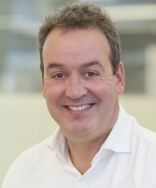Home › blog › 2022 › July › 19th › cleaning practices versus regimes
Cleaning practices versus regimes
19th of July 2022 Article by John Griep
Dutch reporter John Griep on how sector body VSR trains the cleaning inspectors who visit client sites.
What do you do, as a cleaning inspector, if cleaning light switches is still in the cleaning regimen while almost all the lights in the building you are in are turned on and off automatically by sensors? Typically, this is the kind of situation you can run into in this profession.
VSR tries to provide guidance to these professionals, including by organising a VSR Monitors’/Inspectors’ Day with the Foundation for Cleaning Quality (SSK). We organise a day like this every year, so that trained monitors and inspectors of the VSR Quality Measurement System (VSR-KMS) can meet each other.
VSR monitors and inspectors are present at various client sites around the country every day to check cleaning companies are complying with cleaning regimens and meeting the VSR-KMS standards. In 2015, VSR even introduced a quality mark for companies that perform such checks and inspections. This was necessary because some companies had been unjustifiably promoting themselves as custodians of the VSR-KMS, resulting in erosion of the system.
Fortunately, that is no longer possible now. With the VSR Hallmark, we have created a recognisable quality standard that can be checked by clients. Organisations with the quality mark distinguish themselves from the rest, and the quality mark does justice to the VSR-KMS which is, after all, the most independent, scientifically based and reproducible system on the Dutch market. And the VSR-KMS is the only quality measurement system that meets the requirements of the Dutch standard NEN 2075 and the European standard EN 13549.
That said, the meeting with these professionals was centred around real-life situations that do not fall within cleaning regimens, but that you do run into as a monitor or an inspector. How do you handle those situations? Three experts walked the monitors and inspectors through addressing some questions about non-standard situations.
For example, one of the questions was whether a VSR-KMS check may be performed by two people (answer: no, however someone may passively accompany or a senior may train a junior). Another question was about disinfectant residue, which cleaners have had to deal with since the pandemic. Is this a method error or an equipment failure? After all, they do require different approaches.
Such questions arise in part from new developments from outside, as was also evident during the post-workshop chat. For example, people shared experiences about light switches and waste bins, which are increasingly disappearing from the office scene in the Netherlands. And who still has an ashtray? Reporting on the quality of these types of (absent) elements in a building is difficult if they are still in the system.
By sharing these experiences (or sometimes, frustrations), the professionals offered each other some tools and shared some tips. And for us, as VSR, it is instructive to hear what is going on in practice so that we can continuously fine-tune our systems. The overall conclusion was professional cleaning is, above all, a wonderful and valuable industry. As a result, during the drinks, everyone was still buzzing from all the inspiration, and the sharing of knowledge.










